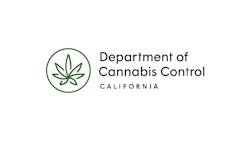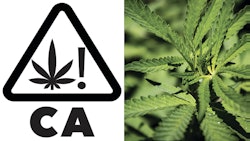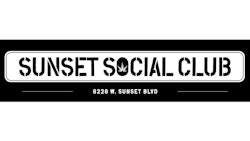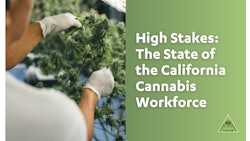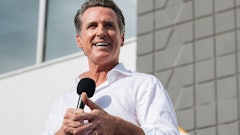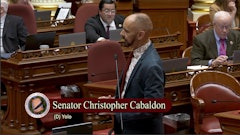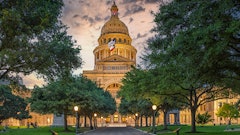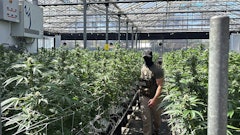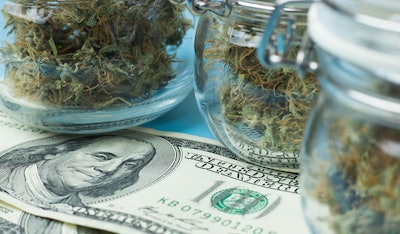
[PRESS RELEASE] – SACRAMENTO, Calif., June 27, 2025 – California cannabis consumers and patients will start paying over 25% more in excise taxes on safe, regulated products on July 1, pushing total tax burdens on legal cannabis to as high as 50% at retail locations across the state.
The tax hike takes effect after the California Senate rejected a proposal to freeze the cannabis excise tax rate in the recent budget trailer bill, allowing the scheduled increase to proceed. The inclusion of the freeze would have averted the hike entirely. Instead, millions of Californians, already facing record-high inflation and affordability challenges, will now pay significantly more for legal cannabis, while unregulated, untaxed products remain widely accessible on the illicit market.
In response, the California Cannabis Operators Association (CaCOA), the state's largest cannabis industry group, has launched an advocacy campaign in support of Assembly Bill 564, sponsored by Matt Haney, D-San Francisco, urging legislators not to raise taxes on consumers and patients.
“The state Senate has decided that Californians should pay more for safe, tested cannabis at the exact moment families are being forced to cut back on virtually everything else,” CaCOA Executive Director Amy O’Gorman Jenkins said. “You cannot squeeze blood out of a stone. This short-sighted decision will push more Californians toward dangerous illicit products, hurt public health, and ironically cost the state millions in lost tax revenue, directly hurting the youth drug prevention programs and community initiatives that depend on these funds.”
California's legal cannabis market has been in steep decline since 2021, with licensed sales dropping 34% while illicit operators control an estimated 60% of total market activity. More cannabis licenses are now inactive or surrendered (10,828) than active (8,514), representing the loss of 7,100 small farms, thousands of brands, and nearly 22,000 jobs over two years.
The tax increase particularly impacts social equity operators and low-income consumers, undermining the goals of California's equity programs designed to address decades of cannabis prohibition's disproportionate harm.
"This tax increase is a direct blow to the survival of equity businesses like mine,” said Kika Keith, founder of Gorilla Rx. “We’ve already endured years of broken promises, underfunding, and structural barriers, and now we’re being taxed out of existence. Our customers are from the very communities harmed by the war on drugs: working families, elders and patients who can’t afford a 25% hike on medicine. Sacramento’s policies are pushing people back into the illegal market and leaving social equity operators to carry the burden. This isn’t equity; it’s exploitation. We need immediate relief, not more roadblocks."
Economic analysis shows cannabis taxes in California now reach 78% of wholesale value, compared to just 8.4% for alcohol and 29.5% for tobacco. Research demonstrates that even modest price increases drive cannabis consumers to illicit alternatives, where products are untested for pesticides, mold and dangerous chemicals.
State modeling indicates that even a 10% drop in legal sales following the tax increase would result in a net revenue loss exceeding millions of dollars for California, creating a lose-lose scenario that reduces both consumer safety and state funding for community programs.
A.B. 564 would freeze the excise tax at 15% (versus the 19% excise tax rate that will be implemented July 1), protecting consumer access while stabilizing state tax revenue. The bill passed the Assembly with strong bipartisan support and is now pending in the California Senate.
However, because A.B. 564 is a policy bill and not part of the state budget process, it cannot take effect until the fall, well after the July 1 tax hike already took effect, leaving consumers and licensed businesses to absorb the financial fallout in the meantime. Many of the businesses that close and consumers who turn to the illicit market during this period will never return to the legal system, creating permanent damage to California's regulated cannabis marketplace.
“A 25% tax hike on an industry that’s barely hanging on is a full-blown disaster, and absolutely should have been avoided," Haney said. "Raising this tax is a slap in the face of small cannabis businesses who simply can’t afford it and are competing with an illegal market that is booming. When you put a huge tax increase on a struggling industry that is already facing high taxes and is barely hanging on, it’s going to hurt businesses, workers and consumers. That's economics 101, and it's common sense.
“I’m incredibly frustrated that the support was not there in the state Senate to stop this tax increase before July 1, but I’m going to keep fighting like hell to get A.B. 564 out of the Senate to the governor’s desk and deliver real tax relief for small businesses that desperately need it. I appreciate that the state Assembly has already unanimously passed my bill, A.B. 564, to freeze the tax, and that Gov. Newsom has publicly expressed his support. This is an existential moment for California’s legal cannabis industry. We will keep working to get this done.”
The legislation is supported by a broad coalition of cannabis operators, labor unions, patient advocates and consumer groups representing hundreds of licensed businesses and millions of Californians who rely on safe, legal cannabis access.
"Every day we delay action on A.B. 564, more Californians are priced out of the legal market and into the hands of illegal dealers who don’t care about testing or safety, let alone paying their taxes," Jenkins said. "We urge the state Senate to honor their commitment to public health, consumer protection and the will of California voters."
TAKE ACTION: Californians can urge their legislators to support A.B. 564 at cacoa.org/dont-raise-taxes












